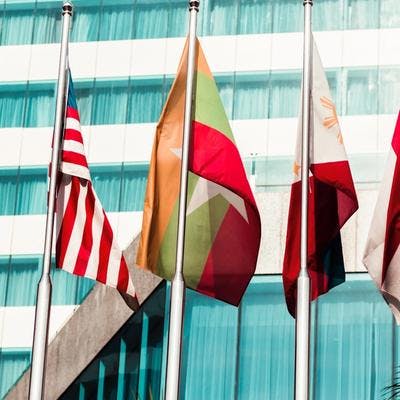
Introduction to Financial Planning as an Expat
Embarking on a journey as an expatriate can be an exciting but challenging experience, particularly when it comes to managing finances in a new country. Financial planning as an expat living in Dubai is a crucial aspect of ensuring a comfortable and secure life in this vibrant city. This section will provide an overview of the financial climate in Dubai and discuss the challenges faced by expats.
Understanding the Dubai Financial Climate
Dubai, a part of the United Arab Emirates, is renowned for its thriving economy and robust financial sector. The city is a major hub for businesses and offers a myriad of opportunities for investment and wealth growth.
However, the financial climate in Dubai is distinct from that of other countries. The absence of personal income tax is a notable feature, which can significantly enhance the disposable income of expats. Nevertheless, the cost of living can be high, particularly in areas like housing, education, and healthcare.
Another unique aspect is the local banking system. While it offers a wide range of services and products, understanding the terms and conditions associated with these can be a complex task for expats. Furthermore, fluctuating exchange rates can impact the value of savings and investments, especially for those who maintain financial ties with their home countries.
Challenges Faced by Expats in Dubai
While the prospect of tax-free income can be enticing, expats in Dubai often face several financial challenges. These include:
- High Cost of Living: Despite the tax advantages, the overall cost of living in Dubai can be high. This includes rent, utilities, education, healthcare, and transportation.
- Understanding Local Financial Practices: From banking norms to investment opportunities, understanding the local financial practices can be daunting for an expat.
- Exchange Rate Fluctuations: For expats who have financial obligations in their home country, exchange rate fluctuations can significantly impact their financial planning.
- Retirement Planning: Unlike many Western countries, the UAE does not have a state-funded pension system for expats. Therefore, planning for retirement requires careful consideration and strategy.
Addressing these challenges is an integral part of successful financial planning for expats in Dubai. It involves understanding the local financial landscape, crafting a personalised financial plan, and making informed decisions about income management, savings, investments, tax planning, and retirement. For insights on financial planning in other countries, you may refer to our resources on financial planning as an expat living in Saudi, Qatar, Bahrain, Cayman, or the Caribbean.
Key Aspects of Financial Planning
When it comes to financial planning as an expat living in Dubai, there are several critical components to consider. These include income management, savings and investments, and tax planning. Each of these elements plays a unique role in ensuring financial stability and growth during your time in Dubai and beyond.
Income Management
Income management centers on effectively controlling your revenue streams and expenditures. As an expat in Dubai, it's crucial to understand and account for various income sources, such as salary, bonuses, rental income, or dividends from investments.
Creating a detailed income and expense report can help track where your money is coming from and where it's going. This report can then be used to identify trends, ascertain potential savings, and strategize your financial planning.
Month Income Expenses Savings January AED 10,000 AED 7000 AED 3000 February AED 10,000 AED 8000 AED 2000 March AED 10,000 AED 7500 AED 2500
Savings and Investments
The second key aspect of financial planning involves savings and investments. Regular savings can provide a safety net for unexpected expenses or income loss. On the other hand, investments can grow your wealth over time, providing additional income streams and helping you achieve long-term financial goals.
In Dubai, there are several investment opportunities available to expats, such as real estate, stocks, and bonds. It's crucial to do thorough research and possibly seek professional advice before making any significant investment decisions.
For further information on savings and investments as an expat in other countries, explore our articles on financial planning as an expat living in Saudi and financial planning as an expat living in Qatar.
Tax Planning
The third component of financial planning is tax planning. This involves understanding and complying with Dubai's local tax laws, as well as those of your home country if you're liable for taxes there.
In Dubai, there is no personal income tax, which is a major draw for many expats. However, other taxes may apply, such as the 5% Value Added Tax (VAT) on certain goods and services.
Additionally, it's crucial to understand international tax laws, especially if you have income sources or assets in your home country. Non-compliance can lead to hefty fines and penalties.
By understanding and effectively managing these three key aspects, you can create a solid foundation for your financial planning as an expat in Dubai. It's always beneficial to stay informed and review your financial plan regularly to ensure you're on track to achieving your financial goals.
Creating a Financial Plan as an Expat in Dubai
Successfully navigating the financial landscape as an expat living in Dubai requires a well-thought-out plan. This involves setting financial goals, budgeting, and understanding Dubai's tax laws.
Setting Financial Goals
The first step in any financial planning process is to identify your financial goals. These could range from saving for retirement, buying property, investing in education, or building an emergency fund. It's essential to set both short-term and long-term goals and ensure they are realistic and measurable.
For instance, if your goal is to save for retirement, outline how much you aim to save and by when. If your goal is to invest, define what kind of returns you expect and the timeline for achieving these returns.
Budgeting
Budgeting is a crucial aspect of financial planning as an expat living in Dubai. It involves tracking your income and expenses, and planning for future spending. This provides a clear picture of your financial situation and helps you make informed decisions.
Start by listing your income sources and expenditures. Then, divide your expenditures into necessary expenses (e.g., rent, utilities, groceries) and discretionary spending (e.g., dining out, entertainment). This will help you identify areas where you can potentially save money.
Income/Expense Category Amount (AED) Total Income 15,000 Rent 5,000 Utilities 1,000 Groceries 2,000 Entertainment 1,000 Savings/Investments 6,000
Understanding Dubai's Tax Laws
Dubai is known for its tax-free status, making it a preferred destination for many expats. However, it's crucial to understand the nuances of Dubai's tax laws to ensure you're not inadvertently violating any rules.
While there is no income tax in Dubai, other taxes may apply, such as Value Added Tax (VAT), which is levied on certain goods and services. Additionally, while you may not pay taxes in Dubai, you may still be liable to pay taxes in your home country depending on its tax laws.
Understanding these laws can help you avoid unnecessary penalties and make the most of your income. If tax laws seem too complex, consider seeking advice from a financial planner or tax consultant.
Creating a solid financial plan can significantly enhance your financial stability and prosperity as an expat in Dubai. Just like financial planning as an expat living in Saudi, Qatar, Bahrain, Cayman, or the Caribbean, the key lies in setting clear goals, budgeting effectively, and understanding the local tax laws.
Managing Savings and Investments
A significant aspect of financial planning as an expat living in Dubai involves the effective management of savings and investments. This includes understanding the importance of diversification, risk tolerance, and exploring various investment opportunities available in Dubai.
Importance of Diversification
Diversification is a crucial strategy in investment management. By spreading your investments across various asset classes, you can balance the risk and reward in your investment portfolio. It helps to minimise the risk of loss, as poor performance in one investment can be offset by better performance in another.
The table below illustrates a simple diversified portfolio:
Asset Class Percentage (%) Equities 50 Bonds 25 Real Estate 15 Commodities 10
However, it's essential to tailor your diversification strategy to your personal financial goals, risk tolerance, and investment time horizon.
Understanding Risk Tolerance
Risk tolerance is the degree of volatility or market risk that an investor is willing to tolerate. It can be influenced by factors such as your financial goals, investment time horizon, and personal comfort with risk.
Understanding your risk tolerance is crucial in forming a successful investment strategy. It can help guide your decision on what types of investments to include in your portfolio, the level of diversification, and the proportion of risky versus safe investments.
For instance, if you have a high risk tolerance, you might be comfortable investing a larger portion of your portfolio in equities, which can offer high returns but also carry high risk. On the other hand, if you have a low risk tolerance, you might prefer safer investments like bonds or real estate.
Investment Opportunities in Dubai
Dubai offers a range of investment opportunities for expats. These include equities, bonds, mutual funds, real estate, and commodities. It's worth exploring these opportunities to identify the ones that align with your financial goals and risk tolerance.
For instance, investing in Dubai's real estate market could provide substantial returns, given its rapid growth and development. Alternatively, if you prefer a lower risk investment, you might consider investing in bonds issued by stable companies or the government.
Before making any investment decisions, it's advisable to conduct thorough research or seek professional advice. This will help ensure that your investment strategy aligns with your financial goals and risk tolerance.
Managing savings and investments effectively is a key aspect of financial planning as an expat in Dubai. By understanding the importance of diversification, your risk tolerance, and the investment opportunities available, you can make informed decisions that help you achieve your financial goals. For more insights on financial planning as an expat in different locations, you may read our articles about financial planning in Saudi, Qatar, Bahrain, Cayman, and the Caribbean.
Navigating the Property Market
A crucial aspect of financial planning as an expat living in Dubai involves understanding the local property market and making informed decisions about housing. This includes the decision between renting and buying and understanding the property laws in Dubai.
Renting vs Buying
The choice between renting and buying a property in Dubai largely depends on your financial situation, long-term plans, and personal preferences. Renting can provide flexibility, which might be beneficial for short-term residents. However, buying a property could be a profitable investment, considering the burgeoning real estate market in Dubai.
Consider the following factors when deciding:
Factor Renting Buying Initial Cost Lower (Rental Deposit) Higher (Down Payment) Flexibility High (Can move anytime) Low (Selling property takes time) Investment No (Payment goes to the landlord) Yes (Property can appreciate over time) Maintenance Landlord's responsibility Homeowner's responsibility
Understanding Property Laws in Dubai
Dubai's property laws are unique and it's important for expats to understand them when considering property investment. In 2002, the Dubai government allowed foreigners to buy, sell, rent or lease a property. However, the property must be in one of the freehold areas designated by the government.
The laws also state that if a property is leased, the contract must be registered with the Real Estate Regulatory Authority. This protects the rights of both landlords and tenants.
Moreover, it's important to know that while expats can buy property, ownership does not grant automatic right to residency. An individual must have a valid UAE residence visa to live in the country.
Understanding these property laws can help expats make informed choices and avoid potential legal issues. For more information on property laws in different countries, consider reading our articles on financial planning as an expat living in Saudi, Qatar, Bahrain, Cayman, and the Caribbean.
Navigating the property market is a crucial part of managing one's finances as an expat in Dubai. Establishing a clear understanding of the benefits and drawbacks of renting vs buying and the property laws in Dubai can pave the way towards smart and profitable decisions.
Insurance and Retirement Planning
When undertaking financial planning as an expat living in Dubai, insurance and retirement planning are pivotal components to consider. These aspects can significantly influence one's financial security and future living standards.
Importance of Insurance
Insurance plays a crucial role in financial planning. It serves as a safety net against unforeseen circumstances that could potentially drain one's savings. For expats in Dubai, there are various types of insurance to consider, including health insurance, car insurance, and home insurance.
Health insurance, in particular, is mandatory in Dubai. It provides coverage for medical expenses, ensuring that healthcare costs do not become a financial burden. Car insurance is also required by law for vehicle owners in Dubai. It protects against potential costs associated with accidents or damages. Home insurance, though not mandatory, is highly recommended to safeguard against potential losses due to events like theft or natural disasters.
Insurance Coverage in Dubai
Insurance Type Coverage Mandatory Health Insurance Medical expenses Yes Car Insurance Accidents, damages Yes Home Insurance Theft, natural disasters No
Planning for Retirement as an Expat
Retirement planning forms the cornerstone of any financial plan. For expats living in Dubai, it's essential to understand the local regulations regarding retirement and to have a strategy in place.
Unlike some countries, Dubai does not have a conventional state-sponsored pension system for expats. Therefore, it falls upon individuals to ensure they have sufficient funds for their retirement years. This could involve investing in a private pension plan, setting aside a portion of each paycheck into a savings account, or investing in assets that can provide a steady income post-retirement.
It's also worth noting that Dubai has strict laws regarding debt. Any unpaid debt or default can lead to serious legal issues, making it vital to clear all debts before retirement.
Retirement Planning Strategies in Dubai
Strategy Description Private Pension Plan Invest in a retirement plan provided by a private company. Regular Savings Dedicate a part of each paycheck towards retirement savings. Investment in Assets Acquire assets that can provide regular income post-retirement.
The journey towards financial freedom as an expat in Dubai involves careful planning and smart decisions. By considering insurance and retirement as fundamental parts of your financial plan, you can navigate towards a secure financial future. For further insights on financial planning as an expat in different locations, you may explore our resources on financial planning in Saudi, Qatar, Bahrain, Cayman, and the Caribbean.
Tips for Financial Success in Dubai
Maintaining financial stability as an expat in Dubai involves more than just earning a salary and paying bills. It requires a proactive approach and constant vigilance. Here are some key tips to assist you in your financial planning as an expat living in Dubai.
Staying Informed
Informed decisions are the foundation of successful financial planning. As an expat in Dubai, it's crucial to stay updated with the local economic climate, market trends, tax laws, and other relevant financial news. Regularly reading financial reports, subscribing to financial news platforms, and joining local financial forums can help you gain a broad understanding of the financial landscape.
Being aware of the financial practices in other regions can also be beneficial. You may find the practices and experiences of expats in other countries insightful. Consider reading about financial planning as an expat living in Saudi, Qatar, and the Caribbean to broaden your perspective.
Seeking Professional Advice
While self-education is important, seeking professional advice can be equally beneficial. Financial advisors can provide personalized advice tailored to your financial goals and situation. They can assist in areas such as investment strategies, tax planning, and retirement solutions.
Consulting a professional does not mean outsourcing all your financial decisions. Rather, it involves leveraging their expertise to make well-informed decisions. Remember, the ultimate responsibility for your financial wellbeing remains with you.
Regular Review of Your Financial Plan
Financial planning is not a one-time task, but a continuous process. Regularly reviewing your financial plan helps ensure it remains aligned with your current goals, circumstances, and the evolving financial landscape in Dubai.
Consider conducting a comprehensive review of your financial plan at least once a year. Pay attention to changes in income, expenses, investment returns, and financial goals. Also, take note of changes in Dubai's financial regulations, as these could impact your financial plan.
In conclusion, achieving financial success as an expat in Dubai involves staying informed, seeking professional advice, and regularly reviewing your financial plan. With these strategies, you can navigate the financial landscape more confidently and effectively, paving the way for a secure financial future.




